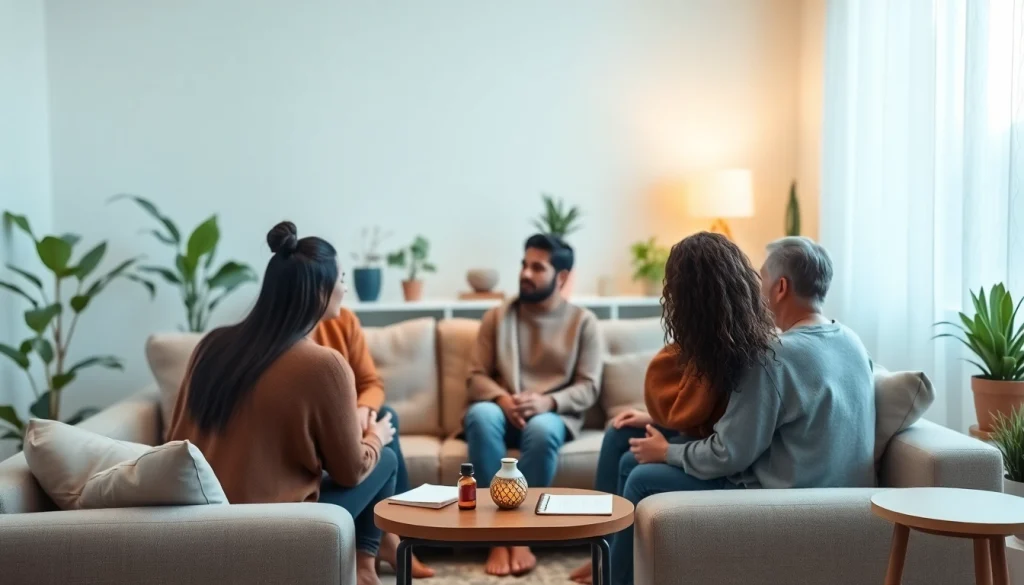
Understanding Anxiety: What It Is and How It Affects You
Anxiety is a common yet often misunderstood mental health condition that impacts millions of individuals globally. The journey to manage anxiety can feel overwhelming, but understanding its roots, symptoms, and potential solutions can empower individuals in their quest for calm. If you find yourself grappling with dealing with anxiety, it’s essential to educate yourself about the condition and explore effective coping mechanisms.
What is Anxiety? Definition and Causes
Anxiety is characterized as a persistent feeling of worry or fear, often disproportionate to the situation at hand. It is not uncommon for individuals to experience anxiety in response to stressors; however, it becomes a disorder when these feelings disrupt daily life. The causes of anxiety can be multifaceted, ranging from biological factors—such as genetics and brain chemistry—to environmental triggers that can increase vulnerability to anxiety disorders.
Understanding Different Types of Anxiety Disorders
There are several types of anxiety disorders, including:
- Generalized Anxiety Disorder (GAD): Characterized by excessive worry about everyday issues.
- Social Anxiety Disorder: An intense fear of social situations that may lead to embarrassment.
- Panic Disorder: Recurrent panic attacks that cause physical symptoms along with overwhelming fear.
- Obsessive-Compulsive Disorder (OCD): Involves intrusive thoughts and compulsive behaviors that disrupt daily life.
- Post-Traumatic Stress Disorder (PTSD): Anxiety that occurs after experiencing or witnessing a traumatic event.
Signs and Symptoms of Anxiety
Recognizing the signs and symptoms of anxiety is crucial for early intervention. Common indications include:
- Constant feelings of nervousness or restlessness
- Increased heart rate and sweating
- Difficulty concentrating or mind going blank
- Sleep disturbances, such as insomnia
- Physical symptoms, including headaches or gastrointestinal issues
Common Triggers for Anxiety and How to Identify Them
Anxiety can be triggered by a variety of factors, and becoming aware of these triggers can serve as a significant first step in managing symptoms effectively.
Everyday Stressors that Increase Anxiety
Common everyday stressors include work constraints, relationship issues, financial pressures, and major life changes like moving or starting a new job. External stressors, such as global events or societal issues, can also contribute to heightened anxiety levels.
The Role of Environment in Anxiety
Your environment plays a critical role in shaping your mental health. Factors such as pollution, noise, chaotic home situations, or lacking community support can enhance feelings of anxiety. Conversely, a peaceful and supportive environment can reduce stress levels significantly.
Recognizing Personal Triggers
Identifying your specific triggers is vital in managing anxiety. Keeping a journal can help recognize patterns and correlate feelings with particular situations or interactions. Reflecting on past experiences may also aid in recognizing conditions that lead to anxiety symptoms.
Proven Strategies for Dealing with Anxiety
Many effective techniques can help individuals cope with anxiety and regain a sense of control over their lives.
Relaxation Techniques: Breathing and Mindfulness
Incorporating relaxation techniques such as deep breathing and mindfulness exercises can help alleviate anxiety. Techniques like progressive muscle relaxation and guided imagery can provide immediate relief. Mindfulness encourages living in the present moment, helping to shift focus away from persistent worries.
Physical Activities that Help Reduce Anxiety
Regular physical activity has been proven to reduce anxiety levels significantly. Engaging in aerobic exercises like walking, running, or cycling stimulates endorphin production, which elevates mood and decreases stress. Even short bursts of movement throughout the day can be beneficial.
Positive Thinking and Cognitive Behavioral Techniques
Challenging negative thought patterns through cognitive behavioral techniques can provide a new perspective on anxiety-inducing situations. Fostering positive self-talk, practicing gratitude, and reframing challenges as opportunities can help in shifting a negative mindset.
Building a Support System: Friends, Family, and Professionals
A strong support system can prove invaluable in managing anxiety. It is essential to communicate feelings and seek assistance when needed.
Communicating Your Feelings Effectively
Speaking about your anxiety with trusted friends or family members can create a supportive environment and foster understanding. When needed, consider discussing your experiences with a mental health professional who can offer tools and strategies tailored to your needs.
Finding the Right Therapist or Support Group
Finding a therapist who specializes in anxiety disorders can provide a crucial supportive role in your journey towards recovery. Support groups, either in-person or online, can offer a sense of community that normalizes the experience of anxiety, reducing feelings of isolation.
The Importance of Community Support
Community support is vital in combating anxiety. Participating in group activities, such as clubs or classes, can promote social interaction and create a sense of belonging that helps to buffer against anxiety symptoms.
Long-Term Strategies for Managing Anxiety in Daily Life
Long-term management of anxiety entails developing coping mechanisms, maintaining healthy lifestyle choices, and knowing when to seek professional help.
Developing Coping Mechanisms for Anxiety
Building healthy coping strategies requires practice and patience. Techniques such as setting daily goals, breaking tasks into manageable steps, and utilizing stress-relief tools can enhance resilience in the face of anxiety.
Healthy Lifestyle Choices to Reduce Anxiety Levels
Maintaining a healthy lifestyle can have profound effects on mental health. Prioritizing a balanced diet, regular exercise, sufficient sleep, and avoiding excessive alcohol and caffeine can help stabilize mood and reduce anxiety levels.
When to Seek Help: Knowing Your Limits
Understanding when to seek help is crucial. If anxiety begins to interfere with daily life or leads to distressing thoughts, reaching out to a qualified professional is essential. Early intervention can lead to more effective treatment and improved quality of life.






